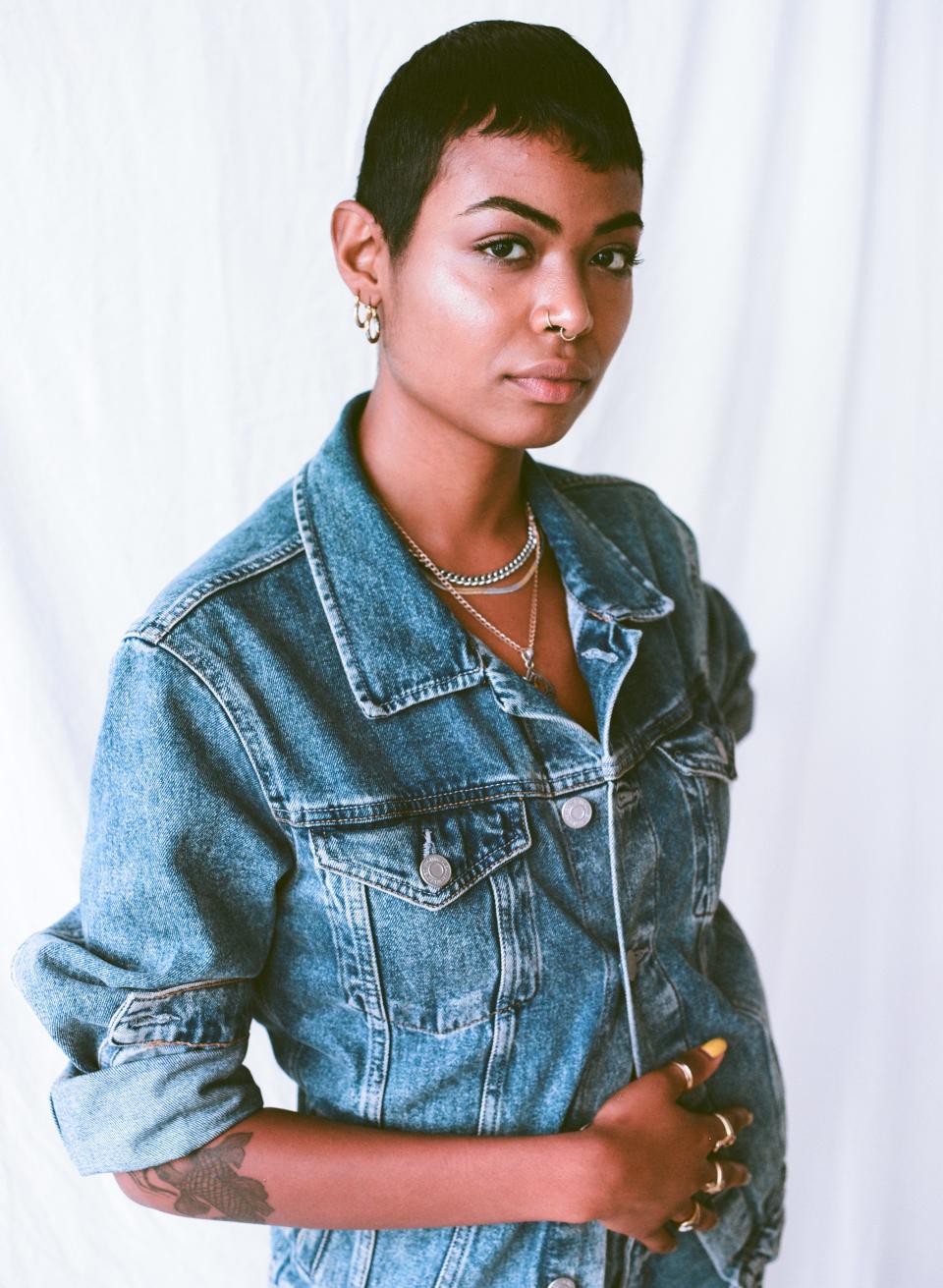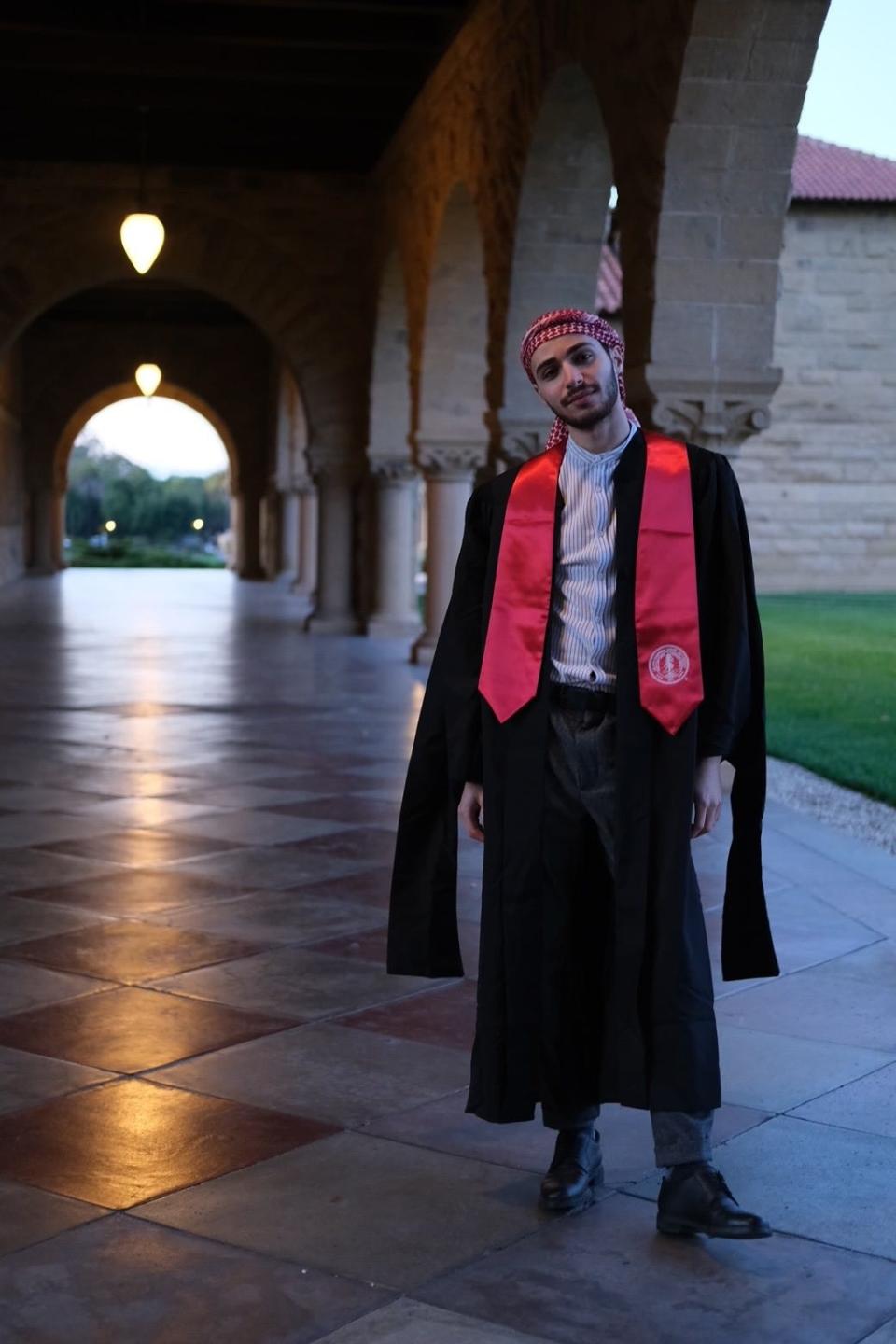For Eid, the end of Ramadan, all LGBTQ Muslims want is acceptance, acknowledgement
When Hamzeh Daoud tells most Muslims they're fasting for Ramadan – but not abiding by the religion's daily five prayers – they're met with a range of reactions, but one stings the worst: "You're not a real Muslim."
But Daoud is a real Muslim.
There's a stereotype of what being Muslim looks like in certain communities that usually involves wearing a hijab, praying daily, fasting during Ramadan and being cisgender and straight. When Muslims fall outside these boundaries, criticism is not uncommon, especially for an LGBTQ member of the community.
As the holy month of Ramadan comes to an end and Muslims around the world are gearing up to celebrate Eid al-Fitr by gathering and feasting with family, friends and neighbors, LGBTQ Muslims say they often feel left out, ostracized or forgotten.
Recently, Muslim Americans have become more accepting of LGBTQ Muslims, according to a 2017 Pew Research Center study, but members of the community say there is still a lot of room for growth. As of 2020, 67 countries criminalize consensual same-sex sexual acts between adults, according to the International Lesbian, Gay, Bisexual, Trans and Intersex Association’s (ILGA) report on state-sponsored homophobia. Many Muslim leaders and scholars condemn same-sex relationships and families and communities have been known to ostracize queer Muslims.
Historically, Islamic scholars have viewed homosexuality as sinful and many still continue to believe that. In 2013, when Daayiee Abdullah became the first openly gay Imam, his local Muslim colleagues refused to meet with him while others condemned him.
A 2020 report from the UCLA School of Law’s Williams Institute found that 106,000 LGBTQ adults identify as Muslim, and though the figure doesn't compare to the four million LGBTQ Christians and Catholics, the community wants to be acknowledged and accepted.
"Queer Muslims have always existed. Queer Africans have always existed. Queer Arabs have always existed. Queerness and queer people, Two-Spirit people, gender non-conforming people, all these identities are so historical and so embedded in our cultures," says Marwa Eltahir, a 2022 Activist-in-Residence, through The LGBTQ Community Center of NY fellow.
What does 'Two-Spirit' mean?: What to know about Two-Spirit, indigenous LGBTQ identities
"There's a really big myth that homosexuality is something that was imported or brought to the Muslim community. That's just historically false. What was imported into our psyche and cultural understanding is homophobia," she says.

Eltahir notes a misconception in the Muslim community (and worldwide) is the idea that queerness is something people choose.
"I know that Allah created me exactly the way that I am," Eltahir says. "I know a lot of queer people, especially queer Muslim people, that upon first coming into their queerness actually didn't want to be queer."
Not all Muslims practice Islam the same: No I don't eat pork, but yes I'd love a glass (or five) of wine.
In light of these myths and attempts to reconcile their Palestinian, Islamic identity with their queerness, Daoud began exploring the history of queerness and transness in Islam and stumbled upon poet Abu Nuwas who wrote about queerness in the 8th century.
"There's queerness and transness that is rooted in Islamic tradition that might not be named queerness and transness, but it's very much on the sexuality and gender diversity expansiveness spectrum," Daoud says.
For Daoud, queerness means resistance. It means joy. It means love personified as fight. Which coincidentally, is also what Islam means to Daoud. It means struggle, surrender and fighting against the world's demonization of Islam.
Daoud and Eltahir are not the first, nor will they be the last, queer Muslim folks.
Often times members of the LGBTQ community are forced to distance themselves from Islam because they are either pushed away by the Ummah (Muslim community) or are made to hate the religion through practices that are rooted in punishment. Some end up embracing Islam only after later realizing they can be Muslim and queer and that's OK.
"It really hurts when people use the Quran or Islam to justify their own biases or mold it in order to fit what their cultural context and cultural biases are. Those are two separate things, do not conflate them," Eltahir says.

Daoud doesn't think there's anything inherently wrong with Islam as a practice, but they do think there's something wrong with the ways the religion has been interpreted and wielded as a tool for power and suppression, which they know is not unique to Islam.
Not only are LGBTQ Muslims forced to face homophobia within the Muslim community, they're also left to navigate Islamophobia. And for Black and African Muslims, racism too.
"You're kind of stuck in this middle ground of like, you're trying to prove your humanity to Muslims who invalidate you as queer and trans, but then you're also trying to prove your humanity to queer and trans communities, but then also to a larger Western community who hates Islam and wants to find any reason to hate on Islam," Daoud says. "That's such a difficult position to be in."
Daoud, who came to study at Stanford University on a student visa, was unable to go back to Jordan after they shared they were queer and trans with their family. They were left to navigate a complex system of seeking asylum in the United States all while being unable to work due to visa restrictions.
Daoud's experience inspired them to work on a survey with Queer Crescent aimed at gathering data on the LGBTQ Muslim community.
"We want to take it a step further so that we're not stuck in this space where we are simply talking about how valid queer and trans Muslims are... We need to start pointing out all the different ways that this invalidity has material consequences," Daoud says.
Eltahir notes that though there are many hardships that come with being a person of color, who's queer and Muslim, there are many other parts of her life that spark joy.
"For many queer folks, including my self, our blood family can feel far away from our queer life and identity. Finding other queer people who accept me as I am, without condition has been one of the most healing experiences," she says.
That joy, she says, is in itself also an act of resistance. She created "Our Political Home," a series that brings together queer African first-generation community members through storytelling.
"It is within the comfort and safety of this community that I am able to show up as a queer Muslim in all my magic and joy," she says.
This article originally appeared on USA TODAY: Ramadan: Muslims want you to know 'queer Muslims have always existed'
